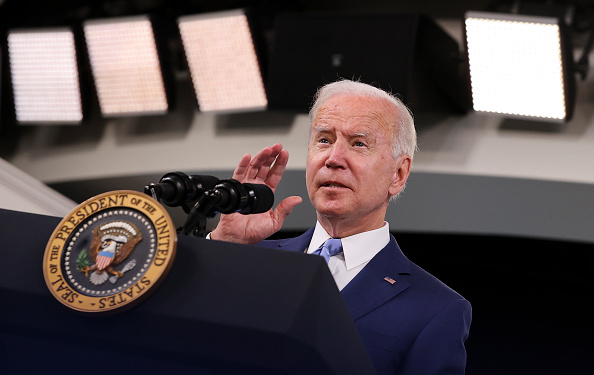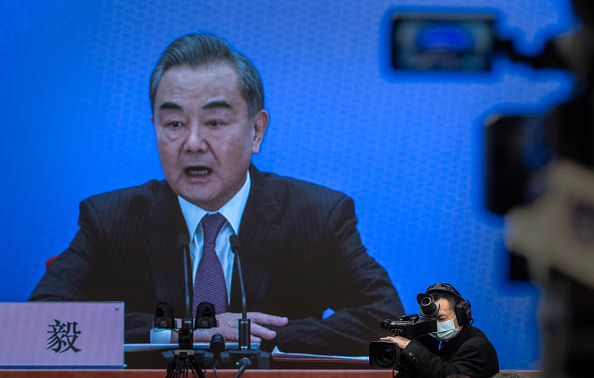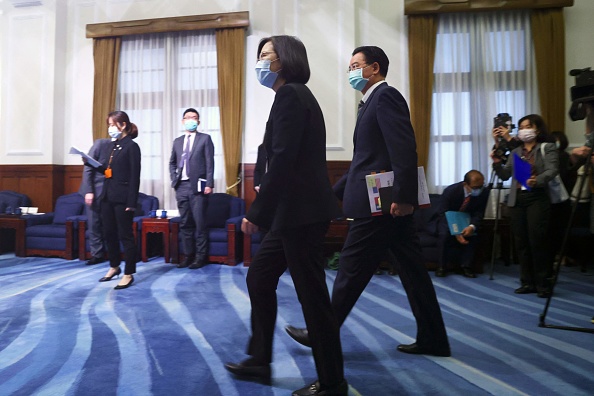
 Competitive Advantage
Competitive AdvantageThe Biden administration has released its 2022 Trade Policy Agenda and 2021 Annual Report, which reviews and updates the Biden administration's trade agenda for the year. Offering few specifics on what the China policy entails, the U.S. Trade Representative (USTR) emphasized it is "laser-focused" on proactive engagement with friendly nations as a key part of its strategy.
"Lack of protections for workers, a weak environmental regime, and anticompetitive subsidies are the hallmarks of China's artificial comparative advantage. It is an advantage that puts others out of business and violates any notion of fair competition," the USTR said in the report.
As the U.S. prepares for confrontation with China on its industrial subsidies, it will also look for ways to protect America's innovative technologies by strengthening U.S. economic policies. In the near future, the U.S. could launch an investigation into China's State-sponsored support for strategic sectors, including semiconductors, artificial intelligence, 5G wireless and electric vehicles as areas where it seeks global leadership. The Biden administration is also deciding whether to increase scrutiny of U.S. companies' investments in China, tighter export controls on sensitive technologies and greater cooperation with European and Asian allies and partners on subsidies and other issues.
Singapore, a key U.S. ally in Asia, is increasingly urging the Biden administration to enhance its economic engagement with the region and to focus on trade, rather than its rivalry with China.
During the 50th anniversary of the Shanghai Communique, which signaled the normalization of relations between United States and China, Beijing indicated that it would be willing to work with the U.S. on its 'Build Back Better World' initiative, and invited the U.S. to participate in the Belt and Road Initiative (BRI) and the Global Development Initiative, a call by Chinese President Xi Jinping in September for all countries to work towards sustainable development.
Read more in "Going Gently into the Night," by Matt Geraci, a Research Associate at the Institute for China-America Studies.
 A Delicate Balance
A Delicate BalanceThe Russian invasion of Ukraine has increased international attention on China's foreign policy. Only a week into the conflict, China has been juggling its position between opposing any infringement on territorial sovereignty and its support for Russia.
China is "extremely concerned" about the harm to civilians in Ukraine, Foreign Minister Wang Yi told his Ukrainian counterpart in a call, in the latest indication of Beijing's desire to prevent the war's further escalation. Acknowledging the conflict as a war for the first time, Wang said the world's second largest economy "deplores the outbreak of conflict between Ukraine and Russia."
Weeks before the invasion, China and Russia announced a strategic partnership, denouncing NATO enlargement and asserting that they would establish a new global order with true "democracy." However, according to a Western intelligence report, senior Chinese officials told senior Russian officials not to invade Ukraine before the end of the Winter Olympics in Beijing, raising questions on China's advance knowledge of Russia's plans. When asked about the claim, a Chinese Embassy spokesman in Washington said, "These claims are speculation without any basis, and are intended to blame-shift and smear China."
China has now signaled its willingness to play a mediator role in the conflict between Russia and Ukraine to achieve a cease-fire and potentially build its credibility as a major power on a global stage. Ukraine is "open to a negotiated settlement" with Russia, Xinhua News reported, and Ukraine "stands ready to strengthen communication with the Chinese side and looks forward to China's mediation in achieving a cease-fire."
As the world has overwhelmingly condemned the assault on Ukraine, online opinion in China is mostly in favor of Russia's invasion, however a small but noisy group of netizens has spoken out against the invasion. A man in Hangzhou held up a sign that read: "Stop War" in English. In Chinese, he wrote, "Please do not support war in Ukraine." On WeChat, Chinese poet Yu Xiuhua published a new poem, titled "I pray a poem can stop a tank."
 Emboldened Aggression?
Emboldened Aggression?As the U.S. remains focused on the increasing tensions in Ukraine, there have been growing concerns in the U.S. that Beijing might be "emboldened by Russian aggression" and take the opportunity to boost pressure on Taiwan, the island over which China claims sovereignty, while Washington's attention is diverted elsewhere. Regardless of whether or not the concerns hold weight, the United States responded by sending a high-level delegation of former officials to Taiwan with the intentions of reassuring the island and to remind China not to increase pressure on Taipei. Former chair of the U.S. joint chiefs of staff Michael Mullen led the delegation, which also included Michèle Flournoy, a former Pentagon official, Evan Medeiros, a former top White House Asia adviser to Barack Obama, and more. The group hopes to show support for Taiwan while also urging the island to intensify efforts to boost its own defense capabilities, echoing a decade of calls from U.S. officials.
In efforts to heed U.S. encouragement, Taiwan plans to double its yearly missile production capacity to nearly 500 this year, according to a defense ministry report. The island's leader, Tsai Ing-wen, also vowed to work more closely with allies to respond to the situation.
In response, China denounced the U.S. delegations' visit to the island and Taiwan's defense efforts. "The attempt by the U.S. to show support to Taiwan will be in vain, no matter who the U.S. sends," Chinese foreign ministry spokesperson Wang Wenbin said earlier this week. He also emphasized that "the Chinese people are firmly determined and resolved to defend national sovereignty and territorial integrity."
Read more in "The Ukraine Crisis Reveals the Eurasian Bloc's Unity," by Leonardo Dinic, an Advisor to the CroAsia Institute.
Prepared by China-US Focus editorial teams in Hong Kong and New York, this weekly newsletter offers you snap shots of latest trends and developments emerging from China every week, while adding a dose of historical perspective.
- 2022-02-25 A Sovereign Tightrope
- 2022-02-18 Strategic Disengagement
- 2022-02-11 In the Thick of It
- 2022-02-04 Year of the Tiger
- 2022-01-28 Zero-Sum
- 2022-01-21 An Uncertain Future
- 2022-01-14 Digital Advances
- 2022-01-07 The Dawn of a New Political Year
- 2021-12-17 Clamp Down
- 2021-12-10 Debating Democracy
- 2021-12-03 Managing Competition
- 2021-11-19 Responsible World Leadership
- 2021-11-12 A Historic Transformation
- 2021-11-05 A Green Rivalry
- 2021-10-29 Dry Tinder
- 2021-10-22 A Diplomatic Burn
- 2021-10-15 Energy Crunch
- 2021-10-08 Stoking Tensions